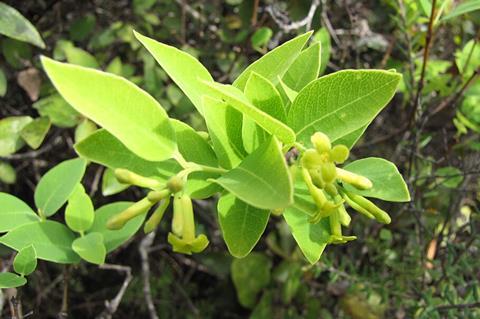Researchers have found a new enzyme, taken from the bacterium Flavobacterium akiainvivens, that has a much broader specificity than the current leading alternatives.

This analysis resulted in the identification of the PNGaseL enzyme taken from Flavobacterium akiainvivens, which is a microbe isolated from decaying wood of the Hawai’ian plant Wikstroemia oahuensis (ākia), as well as being the state microbe of Hawai’i.
The identification of this new enzyme, PNGaseL, is described in a new paper published in The Royal Society Open Science New Talent Collection. This discovery follows on from new research conducted by an international team of scientists from the University of Birmingham, in collaboration with industrial partners.
READ MORE: Healthy gut bacteria that feed on sugar analyzed for the first time
READ MORE: Novel enzyme found in gut bacteria could revolutionize prebiotic research
Using a technique called bioprospecting – the process used to find biological resources that can be used to create commercially valuable products, such as pharmaceuticals, cosmetics, or industrial enzymes – the team studied six previously uncharacterised PNGases’, which are used in a range of research contexts to remove N-glycans from glycoproteins.
PNGaseL was found to work in a broader range of contexts to remove sugars from proteins, showing its greater utility in glycobiological settings and wide research applications compared to the capabilities of two other widely used enzymes, PNGaseF and PNGaseA.
Discovery biology
Dr Lucy Crouch, a Sir Henry Dale Fellow, at the University of Birmingham and lead author of the paper said: “Our study exemplifies the successful translation of fundamental discovery biology into practical applications. Unlike its predecessors, PNGaseL exhibits a significantly broader substrate specificity, meaning it can target glycans from mammalian, insect and plant-derived proteins in parallel.
”We’re very excited by the potential for further discoveries in this space and the impact they may have on both future research and industry-led projects.”
This enzyme is already available to buy through Ludger and can be readily integrated into current protocols.







No comments yet